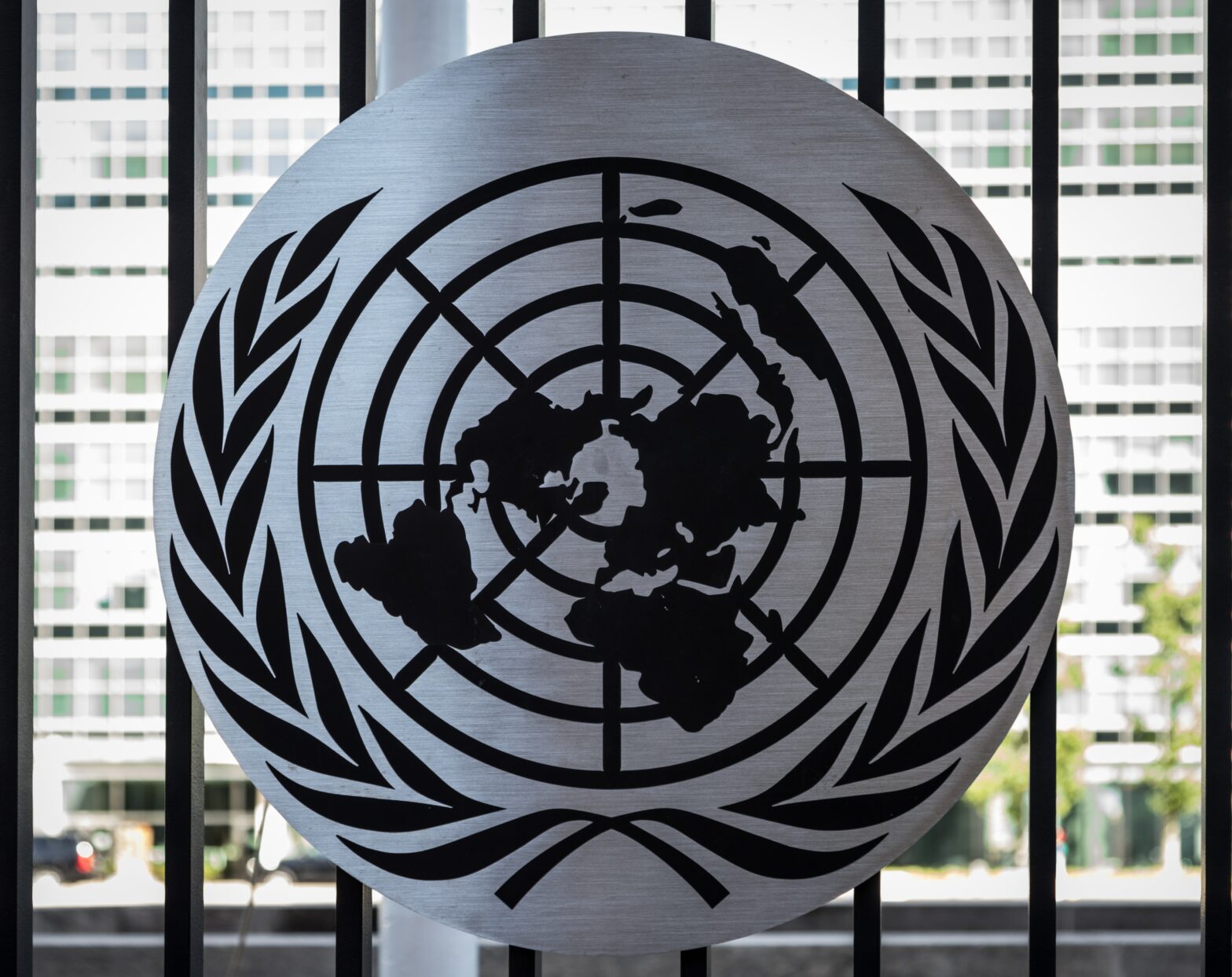Share Twitter Facebook Email Copy URL
This article is part of our series dedicated to the 75th anniversary of the Universal Declaration of Human Rights.
Report of the Special Rapporteur on extreme poverty and human rights
The right to work is a human right, yet one that is formulated in such a way that it merely imposes on governments an obligation of means: essentially, to do what they can to create jobs. Governments should take “steps” to achieve “full and productive employment,” says the International Covenant on Economic Social and Cultural Rights.
Framed in this way, the right to work is impossible to enforce. There is simply no duty on governments to provide jobs to those who are seeking employment but can’t find work.
My latest report to the United Nations Human Rights Council argues that there should be.
To truly fulfil the right to work, governments should be obliged to act as an employer of last resort, meaning that any individual able and willing to work would be entitled to paid public employment. This is the idea of a job guarantee, and it is an idea whose time has come.
Gaining momentum
The idea of an employment, or job, guarantee is not new. Many will be familiar with US President Roosevelt’s Works Progress Administration as part of his New Deal – public works projects that employed millions in response to the depression of the 1930s.
Today, the most extraordinary and largescale job guarantee programmes are being led by countries in the Global South. The largest, the Mahatma Gandhi National Rural Employment Guarantee Act, directly benefited 76 million households in 2020/21. The Expanded Public Works Program in South Africa created a million job opportunities in 2021/22.
Smaller schemes are up and running in the Global North, including Territoires zéro chômeur de longue durée (territories with zero long-term unemployment) in France, which targets the long-term unemployed in some small French municipalities and matches them with jobs that fulfil local needs. Other pilots are running in Austria and Belgium.
From Kazakhstan to Ethiopia, Argentina to Greece, public employment schemes have been trialled and tested around the world – adding insight and evidence to this potentially transformative public policy.
The case for a job guarantee
We know that unemployment significantly increases the risk of poverty. Particularly as just one in five people who are unemployed receive any kind of unemployment benefit – 52% pf people in high-income countries and 0.8% in low-income countries. Even where they do exist, unemployment benefits are often pitifully inadequate.
And employment is about more than just economic security. Decent work has been proven to support social inclusion, build self-esteem and have important mental and physical health benefits. Unemployed people are around twice as likely to report psychological problems as those who are in work, suggesting that unemployment is not just correlated with distress but actually causes it.
A job guarantee can be a powerful tool against poverty and the discrimination that so often accompanies it. As is the case with the French scheme, job guarantees can also ensure the integration of some of the most disadvantaged groups in the labour market, and therefore those most at risk of poverty, such as the long-term unemployed. In India, childcare facilities are provided at the site of employment which has led to participation rates of around 90% of women in some areas – hugely relevant given that India has some of the lowest rates of female labour force participation in the world.
At the same time, it’s well documented that having a job does not guarantee a route out of poverty. Much of the work that exists today is hugely precarious and badly paid – particularly in the informal economy. Here too a job guarantee has an important role to play, by raising the bar of labour standards across the entire economy. There would be no need for workers to accept miserable and exploitative working conditions if they had a decent public job to fall back on.
Addressing the global employment paradox
A job guarantee can also help to address the global employment paradox that sees persistent unemployment and underemployment coexisting with unsatisfied societal needs.
While the International Labour Organization (ILO) expects global unemployment to fall below pre-pandemic levels in 2023 to 191 million (corresponding to 5.3% of the working population), this recovery is not shared equally across all regions. Unemployment is projected to be 11% in North Africa, with a similar picture in Arab and Sub-Saharan African countries.
And while in some countries official unemployment rates are falling, this is not a reason to ignore ongoing problems, not least as hidden from these official unemployment figures are the countless people who disappear from employment statistics because of circumstances outside of their control, such as a lack of childcare, which have meant having to give up the job hunt.
Add to this the additional 470 million people who will be looking for work in developing countries by 2035 and it’s clear that there are simply not enough jobs to go around.
Yet, and here is the paradox, there is certainly no shortage of work to be done. The greening of the economy and the growing care economy (care to dependent persons, education and healthcare) will require substantial workforces. According to the ILO, the health, education and care capacity needed to meet the Sustainable Development Goals in 45 countries representing 60% of the global population will require 117 million additional jobs.
These are areas of the economy that are woefully undersupplied by the market – no doubt because they aren’t churning out massive profits. Yet they’re of huge value to society – what jobs could be more important than those that care for others and steer us out of the climate disaster?
We cannot rely solely on economic growth to provide more jobs, let alone decent, meaningful work that meets our urgent, yet unmet, societal needs. Indeed, there is often a weak association between the two. Take technological advances such as AI or automation, for example, which may see economic growth accompanied with job losses.
It is job guarantee schemes that can provide and pay decently for these vital jobs. Of the nearly 800,000 jobs created in the South African programmes, two thirds were in the basic education sector.
All in the design
There are objections to the job guarantee. But all can be addressed through taking a rights-based approach at the design, implementation and evaluation stages.
Some fear that the introduction of a job guarantee would accompany a shift from welfare to “workfare” – by tempting governments to make social protection benefits conditional upon taking a job. This must not be allowed to happen. To be effective, job guarantee schemes must be truly voluntary and paired with a requirement that there be no retrogression in the provision of unconditional social protection.
Others highlight the risks of corruption – public funds being misused and jobs given to friends and supporters. Taking a rights-based approach to the job guarantee is therefore key to ensuring it is implemented effectively. This means defining access to the scheme as a legal entitlement, allowing for access to recourse mechanisms in cases of exclusion. At the same time, issues around non-take-up must be addressed – ensuring that those who need the scheme the most know how to access it and can do so simply.
Finally, there are those who argue that a job guarantee would be too costly to implement. But this is investment with huge returns. I would counter that it is too costly not to act.
Beyond the economic arguments of lost tax revenues from those not in work, there are many costs of unemployment that are hard to quantify but hugely important, and that should be taken into account in any cost benefit analysis of a job guarantee. The list is long and not exhaustive: the physical and mental health impacts, the stigma that comes with not having a job, the reduction in employability that comes with being unemployed for long periods of time, the knock-on effect on families, the impact on social cohesion and wellbeing.
I believe the argument for well-designed job guarantees is a strong one and has an important role to play in the fight against poverty. It’s now up to the world’s policymakers to get the job done.
Olivier De Schutter has been the Special Rapporteur on extreme poverty and human rights since May 2020. He was appointed by the UN Human Rights Council and is part of the Special Procedures, the general name of the Council's independent fact-finding and monitoring mechanisms that address either specific country situations or thematic issues in all parts of the world. Special Procedures experts work on a voluntary basis; they are not UN staff and do not receive a salary for their work. They are independent from any government or organisation and serve in their individual capacity.
This article is part of our series dedicated to the 75th anniversary of the Universal Declaration of Human Rights.



